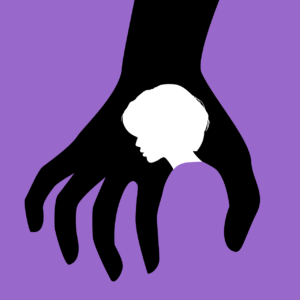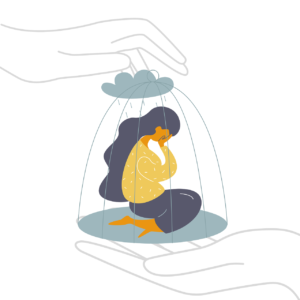Author: Laxsumi Ananthakumaraswamy, Research and Development Officer
The International Day for the Elimination of Violence Against Women takes place annually on the 25th of November. It reminds us that, despite substantial progress, violence against women and girls remains one of the most universal human rights violations.

In 2023, one woman was killed every 10 minutes by their own family member or partner!
This International Day kickstarts the ‘16 Days of Activism Against Gender-Based Violence’ raising awareness about all forms of violence against women, advocating for the protection of women and the persecution of perpetrators.
This year’s theme is ‘Time to Act Now.’ It sets the precedence for governments, humanitarian organisations, communities, and individuals to create a safe environment that allows women to prosper at home, school, work, and anywhere they choose.
Gender-based violence (GBV) is any form of violence directed at an individual because of their gender. GBV can manifest in various forms including physical violence, sexual violence, and psychological violence.

Globally, one in three women has experienced physical and/or sexual intimate partner violence, non-partner sexual violence, or both, at least once in their lifetime.
This is not just an alarming statistic. It is the harsh reality countless women face.
Although laws exist, they do not reflect the widespread nature of the issues. Despite violence against women being a global concern, specific laws against GBV are not universal:
- 49 countries do not criminalise domestic abuse
- 45 countries lack laws that address sexual harassment
- 112 countries have no legislation against marital rape
We must act as a catalyst for change by urging lawmakers to acknowledge GBV, holding accountable those who commit acts of violence, and demanding safety for women in every aspect of their lives. Efforts should arise not just from the desire to achieve a goal, but out of respect for every individual and their human rights.
GBV poses a significant threat to 60 million girls and women who have been forcibly displaced.
Particularly now, as intensifying climate crises, conflicts, and economic insecurity are escalating GBV. Individuals who are forcibly displaced and stateless, women with disabilities, and girls, face a higher risk of GBV and are disproportionately affected due to intersecting forms of discrimination.
There has been a staggering rise in sexual violence over the space of a year, primarily due to intensifying conflicts around the world. Instability, displacement, and destruction leave women and girls vulnerable to violence. Conflict-related sexual violence has risen by 50% from 2022 to 2023.
Women become exponentially more likely to experience GBV after a natural disaster. An estimated 80% of those displaced by climate change are women. After Hurricane Katrina in 2005, reports of rape among displaced women surged to six times the baseline rate for Mississippi in that year. Furthermore, displaced women are at higher risk of human trafficking, sexual abuse and forced prostitution.
During these 16 days of activism, it is essential to act now to support those most vulnerable to GBV. With forcible displacement on the rise, we must advocate for better protection for women and girls facing humanitarian crises by:
- Promoting collective action, including engaging male allies, to strengthen legal frameworks that advance gender equality.
- Ensuring victims have access to emergency healthcare and treatment.
- Investing in women-led organisations within displaced populations that implement community programs aimed at prevention through challenging harmful norms and creating safe spaces.
It is crucial to prioritise efforts as preventing GBV is possible!
Sources
https://www.un.org/en/observances/ending-violence-against-women-day
https://www.who.int/news-room/fact-sheets/detail/violence-against-women
https://datatopics.worldbank.org/sdgatlas/archive/2017/SDG-05-gender-equality.html
https://www.unhcr.org/uk/what-we-do/safeguard-human-rights/protection/gender-based-violence
